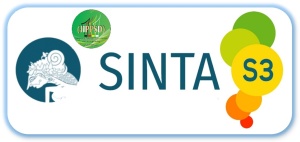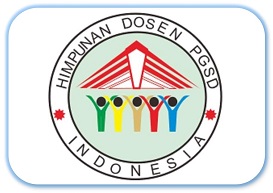Mampukah Model Problem Based Learning meningkatkan Prestasi Belajar Sains Mahasiswa Calon Guru Sekolah Dasar?
 ),
), (1) Universitas Negeri Padang
 Corresponding Author
Corresponding Author
DOI : https://doi.org/10.24036/jippsd.v3i1.106372
Full Text:
 Language : en; ind
Language : en; ind
Abstract
This study aims to improve the learning achievement of elementary school students. Second semester students majoring in elementary school teacher education (PGSD) FIP UNP Padang were involved as research subjects. As many as 24 students were given science learning by using the Problem Based Learning model. Subjects/samples of the study were given learning actions in the lectures of the basic concepts of Natural Sciences. Data obtained after the study were analyzed with descriptive statistics. This research was a classroom action research and was carried out for two cycles. The research findings show the results that an increase in student learning achievement with an average achievement score in cycle one of 76.28 and an average score in the second cycle of 88.46. An increase in score of 86.75. The findings can be concluded that the Problem Based Learning model is effective in improving student learning achievement rather than independent learning. Thus the science learning model Problem Based Learning can be used as an alternative model to improve student achievement in the digestive system material.
Keywords
References
Akinoglu, O. & Tandogan, RO. (2007). The Effects of Problem-Based Active Learning in Science Education on Students’s Academic Achievement, Attitude and Concept Learning. Eurasia Journal of Mathematics, Science and Technology Education, 3(1), 71-81.
Arikunto, Suharsimi,dkk. (2009). Penelitian Tindakan Kelas. Jakarta: Bumi Aksara.
Amir, Taufik. (2010). Inovasi Pendidikan Melalui Problem Based Learning. Jakarta: Kencana.
Asy’ari, Maslichah. (2006). Penerapan Pendekatan Sains – Teknologi – Masyarakat dalam Pembelajaran Sains di Sekolah Dasar. Yogyakarta: Universitas Sanata Dharma.
Depdiknas. (2006). Kurikulum Tingkat Satuan Pendidikan Jenjang Pendidikan Dasar. Jakarta: BNSP.
Hosnan. (2014). Pendekatan Saintifik dan Kontektual dalam Pembelajaran Abad 21. Bogor: Ghalia.
Inel, D. & Balim, A. (2010).The Effects of Using Problem-Based Learning in Science and Technology Teaching upon Students' Academic Achievement and Levels of Structuring Concepts.Asia-Pacific Forum on Science Learning & Teaching, 11(2), Article 1. (Tersedia http://www.ied.edu.hk/apfslt/v11_issue2/inel/.Diakses 6 Mei 2012).
Root. (2007). Problem centered inquiry Model. www.math.ccsu.edu/mitc hell/mat 520inquirymodel.ppt.mirip. (20 Mai 20011).
Kemmis S & MctTaggart. (1988). The Action Research Planner. Australia: Deakin University Press.
Rusman. (2011). Model-Model Pembelajaran: Mengembangkan Profesionalisme Guru. Jakarta: Raja Grafindo Persada.
Trianto. (2011). Mendesain Model Pembelajaran Inovatif-Progresif. Jakarta: Kencana Prenada Media Group.
Samatowa, Usman. (2006). Bagaimana Membelajarkan IPA di Sekolah Dasar. Jakarta: Departemen Pendidikan Nasional.
Yatim, Riyanto. 2010. Paradigma Baru Pembelajaran. Jakarta: Prenada Media Group
 Article Metrics
Article Metrics
 Abstract Views : 457 times
Abstract Views : 457 times
 PDF Downloaded : 183 times
PDF Downloaded : 183 times
Refbacks
- There are currently no refbacks.







